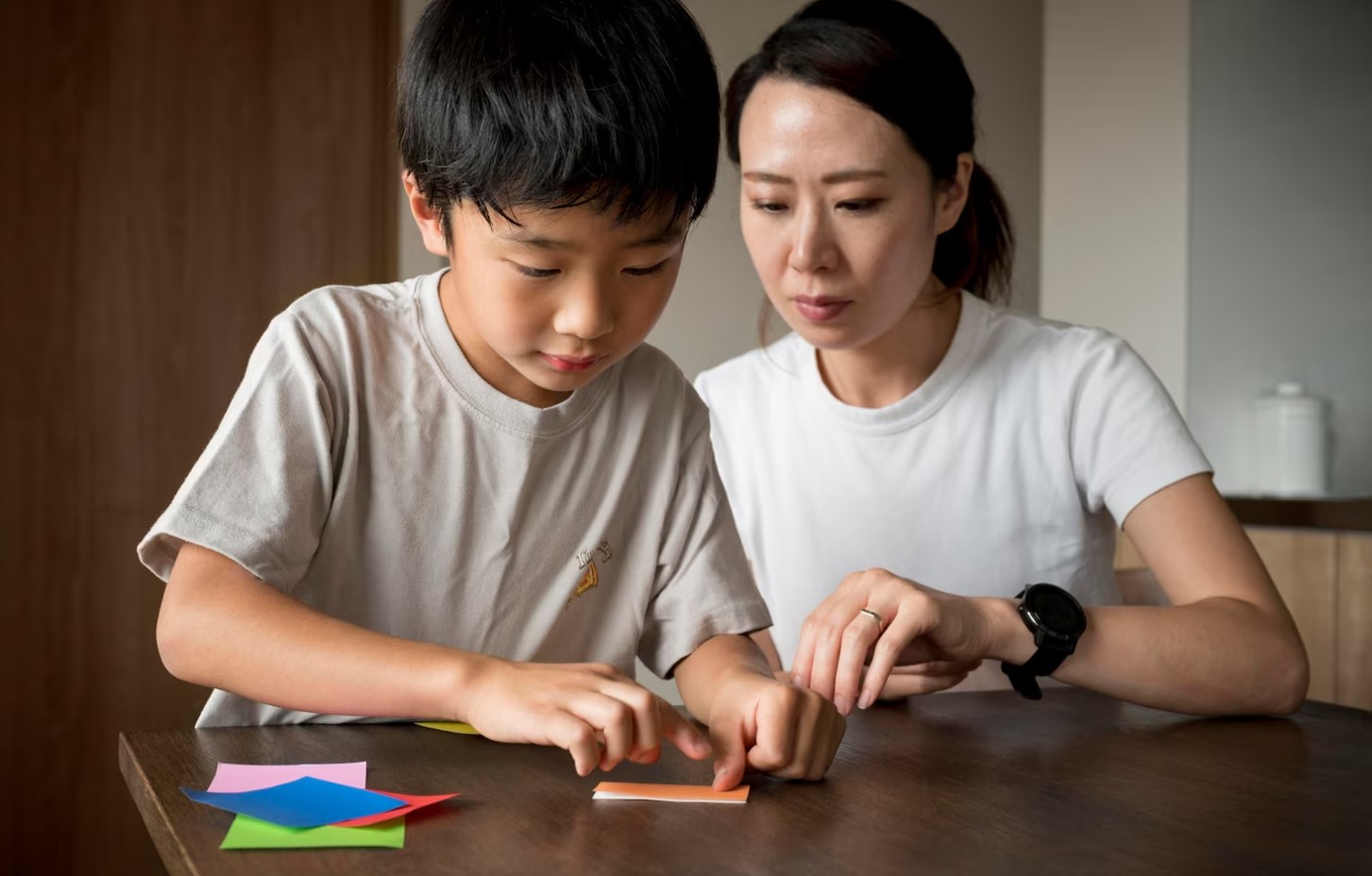
Nurturing Healthy Parent-Child Relationships: Understanding and Addressing Aggression
Aug 14, 2023Welcome to our comprehensive guide on nurturing healthy parent-child relationships and addressing aggression. As a therapist treating clients with angry kids, your role in helping parents navigate the challenges of the parent-child relationship is crucial. By understanding the root causes of aggression, differentiating between anger, assertiveness, and aggression, and implementing effective strategies, you can support parents in building strong relationships and promoting positive child development.
In this guide, we will explore practical approaches, provide examples, and offer actionable tips to address aggression at various stages of development. Let's delve into the underlying reasons behind aggression and discover how you can respond appropriately, guiding children towards healthier expressions of their needs and emotions.
Understanding Aggression in Children:
Aggression in children is a complex issue that requires careful examination. It's important to recognize that aggression is not a single entity, but rather a spectrum that ranges from assertiveness to anger. By differentiating between these emotional states, you can help parents understand the nuances and guide children toward more appropriate behaviors.
Root Causes of Aggression:
To effectively address and manage aggression in children, it's crucial to understand its underlying causes. These causes can be categorized into biological, psychological, and environmental factors. By identifying the root causes, you can tailor your therapeutic interventions to address the specific needs of each child. Here are some examples:

1. Biological Factors:
- Genetic predisposition to aggression: Some children may have a higher genetic likelihood of exhibiting aggressive behavior.
- Imbalances in brain chemistry: Neurochemical imbalances can contribute to impulsive and aggressive behaviors in children.
2. Psychological Factors:
- Trauma or adverse childhood experiences: Children who have experienced trauma or adverse events may exhibit aggression as a coping mechanism.
- Difficulties with emotional regulation: Some children struggle to manage their emotions effectively, leading to outbursts of aggression.
- Low self-esteem or poor self-image: Children with low self-esteem may use aggression as a means of asserting themselves or gaining control.
3. Environmental Factors:
- Chaotic or stressful home environments: Unstable or stressful home environments can contribute to increased aggression in children.
- Exposure to violence or aggressive role models: Children who witness or experience violence may imitate aggressive behaviors.
- Inconsistent or ineffective discipline strategies: Inconsistent discipline or lack of clear boundaries can lead to confusion and frustration in children, manifesting as aggression.
Strategies for Addressing Aggression:
As a therapist, you play a vital role in guiding parents and providing them with effective strategies to address aggression in their children. Here are some practical tips and techniques you can share with parents:

1. Teaching Emotional Intelligence:
- Encourage children to identify and express their emotions in healthy ways.
- Teach them techniques for self-calming and emotional regulation, such as deep breathing or mindfulness exercises.
- Model healthy emotional expression by discussing your own emotions and coping strategies.
2. Developing Problem-Solving Skills:
- Teach children problem-solving techniques, such as brainstorming solutions and evaluating consequences.
- Encourage them to consider alternative perspectives and find constructive ways to resolve conflicts.
- Provide opportunities for children to practice problem-solving in real-life situations and offer guidance when needed.
3. Cultivating Empathy:
- Help children understand the impact of their actions on others by encouraging perspective-taking.
- Engage in activities that promote empathy, such as role-playing, storytelling, or volunteering.
- Model empathy in your interactions by actively listening, validating emotions, and showing compassion towards others.
4. Setting Clear Boundaries and Consequences:
- Establish clear rules and expectations that are age-appropriate and consistently enforced.
- Communicate these boundaries in a calm and assertive manner, ensuring that children understand the reasons behind them.
- Explain the rationale behind the rules, emphasizing respect, safety, and consideration for others.
- Consistently apply appropriate consequences when boundaries are crossed, focusing on teaching lessons rather than punitive measures.
5. Developing a Spiritual Foundation:
- Help children develop a sense of spirituality or connectedness to something greater than themselves.
- Introduce practices such as meditation, mindfulness, or nature exploration to foster emotional regulation.
- Teach values such as kindness, forgiveness, gratitude, and compassion as guiding principles for behavior.
Remember, each child is unique, and it may take time to find the strategies that work best for them. Encourage open communication between therapists, parents, and children to ensure a collaborative approach. Regular check-ins and progress assessments can help track the effectiveness of the strategies and make any necessary adjustments.
Building Strong Parent-Child Relationships:
Strong parent-child relationships are vital for fostering healthy child development and reducing aggression. As a therapist, you can guide parents in strengthening their bond with their child through effective communication and relationship-building techniques. Here are some examples and tips to share:

1. Active Listening:
- Encourage parents to give their children their undivided attention when they are speaking.
- Advise maintaining eye contact and providing verbal and non-verbal cues to show active listening.
- Remind parents to avoid interrupting or dismissing their child's thoughts and feelings, fostering an open and safe space for expression.
2. Empathy and Understanding:
- Encourage parents to try to see things from their child's perspective and validate their emotions and experiences.
- Suggest reflecting the child's feelings back to them to demonstrate understanding and empathy.
- Guide parents to use phrases such as, "I can understand why you feel that way" or "It sounds like you're really frustrated."
3. Creating a Safe Space:
- Advise parents to create an environment where their child feels safe to express emotions and concerns without fear of punishment.
- Remind them to assure their child that their feelings are valid and important.
- Encourage parents to avoid reacting with anger or judgment when their child shares their thoughts or emotions.
4. Bonding Activities and Quality Time:
- Suggest parents engage in activities that promote bonding and quality time with their children.
- Encourage shared hobbies or interests that both the parent and child enjoy.
- Recommend planning regular family outings or special one-on-one time to strengthen the parent-child connection.
5. Positive Reinforcement and Praise:
- Highlight the importance of noticing and acknowledging the child's positive behavior and efforts.
- Advise parents to provide specific and genuine praise, emphasizing the actions or qualities they appreciate.
- Encourage parents to reinforce desired behavior through rewards or incentives, such as a small treat or extra privileges.
It's essential to emphasize to parents that building a strong parent-child relationship takes time and effort. Encourage them to be patient and consistent in their approach while adjusting strategies to suit their child's unique needs and personality. Celebrating small successes and being forgiving of setbacks will help parents stay motivated on this ongoing journey of strengthening the parent-child bond.
Remember, therapists play a vital role in supporting parents dealing with aggression in their children. It is crucial to provide ongoing guidance, monitor progress, and make necessary adjustments to the treatment plan. Here are additional considerations and recommendations for therapists working with parents of angry kids:
Collaboration and Support:
- Foster a collaborative relationship with parents, working together to address their concerns and develop effective strategies.
- Offer support and reassurance to parents, helping them navigate the challenges of parenting an angry child.
- Encourage parents to engage in self-care activities, as managing an angry child can be emotionally demanding.
Psychoeducation:
- Educate parents about the developmental stages and milestones their child is experiencing, as well as common emotional and behavioral patterns.
- Help parents understand the difference between age-appropriate assertiveness and problematic aggression.
- Provide resources, reading materials, or workshops for parents to deepen their understanding of aggression and effective parenting techniques.
Behavioral Interventions:
- Collaborate with parents to develop behavior management plans tailored to their child's specific needs.
- Teach parents techniques such as positive reinforcement, token economies, or behavior contracts to encourage desired behaviors.
- Support parents in implementing consistent consequences for aggressive behavior, focusing on teaching alternatives rather than punishment.
Parenting Skills Training:
- Conduct parenting skills training sessions to equip parents with effective communication and discipline strategies.
- Teach parents active listening skills, empathy-building techniques, and conflict resolution methods.
- Role-play challenging situations to help parents practice and reinforce new skills.
Individual and Family Therapy:
- Offer individual therapy for the child to address underlying emotional or psychological issues contributing to aggression.
- Conduct family therapy sessions to improve communication patterns and enhance the overall family dynamic.
- Provide a safe space for all family members to express their concerns, emotions, and perspectives.
Referrals and Collaborative Care:
- Collaborate with other professionals, such as child psychologists, psychiatrists, or occupational therapists, as needed.
- Refer families to specialized services or community resources that can provide additional support or intervention for specific needs.
- Maintain open lines of communication with other professionals involved in the child's care to ensure comprehensive and coordinated treatment.
CEU Outlet
To enhance your knowledge and skills in working with angry kids and frustrated parents, enroll in the CEU Outlet Continuing Education course: "Angry Kids Frustrated Parents." Designed for professionals and family members facing challenges in the parent-child relationship, this course offers valuable insights and practical strategies. Learn about the underlying reasons behind aggression, differentiate between anger, assertiveness, and aggression, acquire tips for improving aggression and promoting healthier emotional expressions, gain strategies for setting boundaries and developing a spiritual foundation, and develop effective techniques for building strong parent-child relationships. Invest in your professional development, expand your expertise, and support families facing aggression challenges. Visit CEU Outlet's website today and take a significant step towards promoting positive parent-child relationships and empowering children to thrive emotionally, socially, and mentally.
Final Thoughts:
Nurturing healthy parent-child relationships and addressing aggression requires a multi-faceted approach that combines understanding, effective communication, and targeted strategies. As a therapist treating clients with angry kids, you have the opportunity to guide parents and empower them with the tools they need to foster positive child development.





